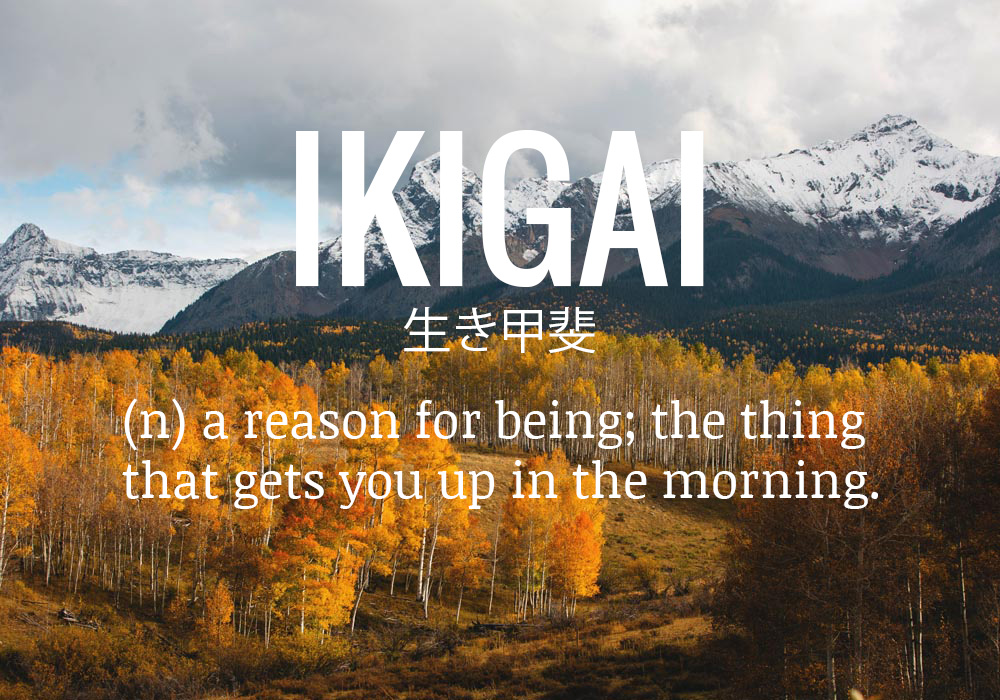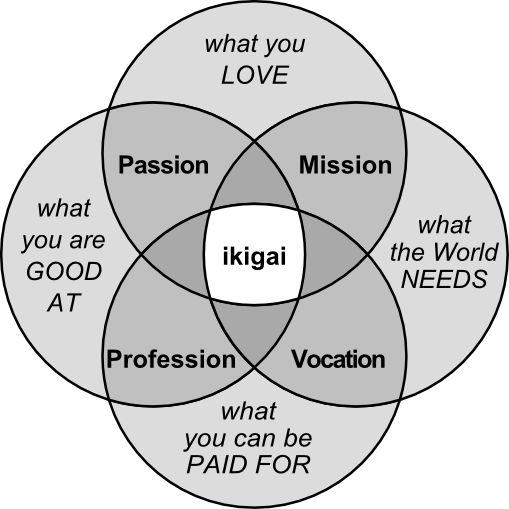Imagine a world where you wake up in the morning and you’re excited. There’s nothing special about the day in particular. You’re not about to go on vacation. It’s not your birthday. It’s just another day, yet you’re excited. You can’t wait to get out of bed.
What the f*ck is going on, you might be wondering? I’m not describing heaven or utopia, but rather the feeling of Ikigai (生き甲斐) or what the Japanese call “a reason for being”, an idea the Japanese believe every person has.
The feeling of Ikigai is essentially the same as the search for your meaning of life. The thing that brings you purpose, happiness, and satisfaction. As with anything that is important in life, this is no simple feat. Finding your Ikigai is a deep and enduring search into one’s self. Moreover, it’s probably something that many of us are already going through. We’re trying to find our passion. Our purpose. What makes our lives worthwhile and will give us that joy on a daily basis.
We’re trying to find our passion. Our purpose. What makes our lives worthwhile and will give us that joy on a daily basis.
An important distinction is that Ikigai doesn’t strictly mean your career or your economic status, but it is representative of all aspects of your life: hobbies, relationships, careers, spirituality, and so on. It is the culmination of your life as a whole.
Moreover, Ikigai is not forced, rather it is something we are willing to do. These are natural actions and behaviors. We’re not trying to become something we are not.
How Do You Achieve Ikigai
Ikigai can be achieved by answering four distinct questions.

1. What do you love?
Irrespective of all other factors, what are the things you love to do. You probably are aware of these already, though you may not know what to do with them quite yet. If you’re not sure, try asking yourself this question.
2. What does the world need?
A lot when you think about it. In our own cities in the United States to half way across the world, there are a lot of problems to be solved. If you can find one that interests you, then you can use that to guide you.
These first two questions I think are the core of finding Ikigai. They build the foundation for the next two questions because they are a bit more flexible.
3. What can you be paid for?
Pretty much anything. You just need to find people who need what you’re selling. You may have to get a bit creative, but there’s something of value within the things you love and what the world needs. You just have to seek it out.
4. What are you good at?
Finally, everyone typically has some traits or skills that they excel at. They may not like it or want to pursue it, but if you look at yourself, you have inherent strengths, as well as weaknesses.
If you don’t enjoy your talents, it may be a matter of applying them differently. If that doesn’t work, the beautiful thing is that you can become good, if not great, at a lot of things. Putting in the time and effort is key and can even be easy, when you’re working to get good at the things you love.
______________
P
utting these together allow you to find different parts of your self. Understanding what you love and what you’re good at leads you to passion. On the other hand, finding what the world needs and what you can be paid for identifies your vocation.
The intersection of all of these is where you achieve Ikigai. Of course this isn’t something that happens over night. It takes many of us years or our entire lifetime just to realize our passion, so I can only imagine finding your Ikigai would be that much more difficult.
Even so, it’s the ultimate form of self-actualization and a worthy one at that. Hopefully these questions can help you start to discover where you should be going to achieve your own reason for being.
So the question is, are you excited to wake up tomorrow?

